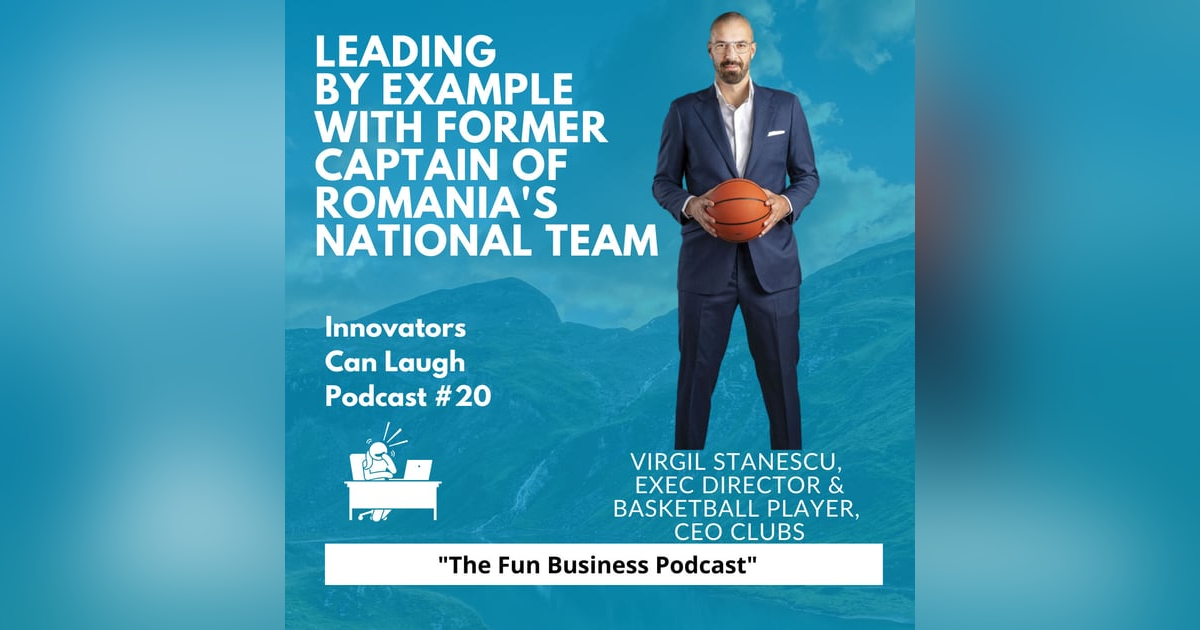Sept. 26, 2021
Virgil Stanescu - former Romanian basketball player to Executive Director of CEO Clubs International

In this episode of Innovators Can Laugh, I sat down with Virgil Stanescu, Executive Director of CEO Clubs International. We discuss his career as a professional basketball player, how sports is a pillar of education, and how he instills competitiveness in others by leading as an example.
| In this episode of Innovators Can Laugh, I sat down with Virgil Stanescu, Executive Director of CEO Clubs International. We discuss his career as a professional basketball player, how sports is a pillar of education, and how he instills competitiveness in others by leading as an example.











